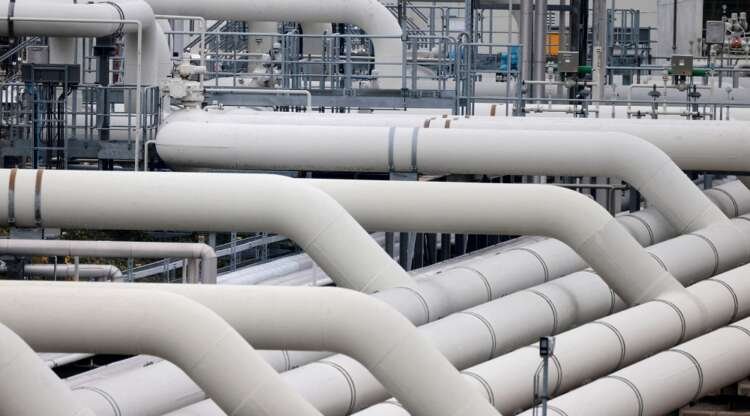Explainer: What are the snags in Germany’s gas levy on consumers?


By Markus Wacket and Vera Eckert
FRANKFURT (Reuters) – Germany’s cabinet agreed late on Thursday to impose a gas price levy on consumers, aiming to help struggling importers including Uniper cope with soaring prices due to reduced Russian supply.
The levy aims to share the additional cost of replacing gas from Russia among all users, including households and industrial consumers, with the proceeds available to all companies that need to replace Russian gas.
But there are several hurdles to raising the fees that must be overcome ahead of the winter heating season which starts in October.
Utilities – wedged between importers and squeezed end consumers – fear being stuck with back-breaking costs.
Here are the pitfalls that government and legal sources say lawmakers must address:
COSTS PILE UP FOR CONSUMERS
The government so far expects to impose a levy of between 1.5-5.0 euro cents per kilowatt hour (kWh) on consumers to pay for 90% of the higher cost of wholesale gas, plus an as yet unspecified levy for gas storage.
The first of those alone would cost a four-person household consuming 20,000 kWh up to 1,000 euros ($1,022) extra, before value-added tax and regular seasonal price hikes.
Even before the new measures, annual household gas bills are three times higher than a year ago, prices portal Verivox has calculated.
Suggestions by ruling coalition and opposition policymakers to help low-income households include tax refunds and a possible relaxation of insolvency laws, as seen during the pandemic.
TIME PRESSURE
The government opted for a general levy because companies would likely be sued by customers if they used price adjustment mechanisms.
Customers must by law be notified of the levy six weeks in advance of the proposed Oct. 1 start date, meaning the amount must be set by gas zone operator Trading Hub Europe (THE) by Aug. 15, with utilities mailing consumers by Aug. 19.
Implementing the planned two-pronged levy makes the time frame even tighter.
Given the levy will only be set for three months at a time, reviewing it will require regular and time-consuming administration.
FIXED PRICES
Around one quarter of gas consumer contracts are based on fixed prices, typically for one calendar year. It is not clear if it is possible to charge the levy for the remainder of 2022 in these cases.
The two houses of parliament would have to approve such a move after their summer break ends in September, meaning delays. By law the levy on fixed-price contracts cannot be imposed for six weeks after it is approved, taking its arrival into at least October.
In addition, in the heat sector, consumer groups argue it is unfair that consumers forced to rely on gas-generated heat should be hit by charges while those getting heat from coal or waste power plants won’t.
If some consumers were not obliged to pay extra, the burden on the rest would be higher, contradicting the intended effect of sharing out the additional burden of high gas prices.
LEGAL DEMANDS
Utility companies’ management and supervisory boards must approve the collection of levies even if it is mandated by the state, which is also time-consuming.
($1 = 0.9778 euros)
(Reporting by Markus Wacket and Vera Eckert; Editing by Kirsten Donovan and Jan Harvey)
A gas levy is a fee imposed on consumers to help cover the increased costs of gas supply, particularly when traditional sources are reduced or unavailable.
Fixed-price contracts are agreements where the price of gas is set for a specific period, protecting consumers from price fluctuations during that time.
Value-added tax (VAT) is a consumption tax placed on a product whenever value is added at each stage of production or distribution.
Trading Hub Europe (THE) is responsible for managing the gas market in Germany, including setting prices and overseeing the implementation of gas levies.
Insolvency laws govern the process when a company cannot meet its financial obligations, affecting how debts are managed and settled.
Explore more articles in the Top Stories category











